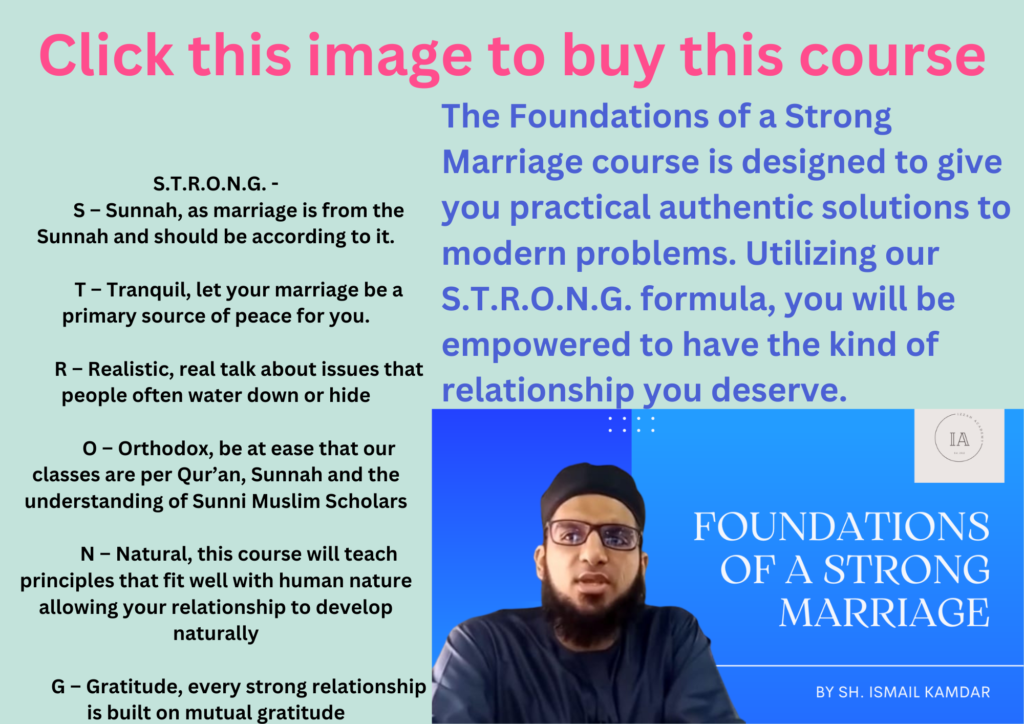Abu Huraira reported: The Prophet, salallaahu ‘alayhi wa sallam said, “Nothing afflicts a Muslim of hardship, nor illness, nor anxiety, nor sorrow, nor harm, nor distress, nor even the pricking of a thorn, but that Allah will expiate his sins by it.” (Sahih Al-Bukhari & Muslim)
Have you ever encountered a difficult situation which was challenging to overcome? How did you manage to recover?
We often encounter tough hurdles throughout our lives and find it challenging to be ourselves thereafter. These challenging circumstances are intended to make us stronger and more resilient. Such events may involve an unexpected loss of a loved one, sustaining a serious injury, losing your job, going through a divorce, failing an exam or being affected by a natural disaster. The effects of such traumatic events can differ for various individuals. It could lead to despair, excessive stress, apprehension, discomfort or it may result in additional body illnesses. Stress may transform and affect people both mentally and physically if not addressed. Individuals must discover coping mechanisms for such stressors and methods of healing in order to prevent bodily and mental disorders.
Several strategies for recovering from unforeseen catastrophes have been addressed below.
Quran – A source of Healing and Guidance
“…….Say, “It is, for those who believe, a guidance and cure”……. (Quran 41:44) (Saheeh International Translation)
Reciting the Quran on a daily basis has a soothing effect on all individuals’ bodies, minds and hearts. Individuals who are trying to recover from challenging situations can find inspiration from countless narratives and ayahs mentioned in the Quran. Islamic therapists and practitioners frequently employ the usage of Ruqyah as a therapy approach. Ruqyah is a form of therapy centered around the Quran and Sunnah that can be utilized for curing illnesses and other ailments by reciting the Quran, doing dhikr and supplicating to Allah subhanahu wa ta’ala.
Abdullah ibn Khubayb reported : The Messenger of Allah salallaahu ‘alayhi wa sallam said, “Speak.” I said, “What should I say?” The Prophet said, “Say : He is Allah, the One (112:1) and the two chapters of refuge, Al-Falaq and Al-Nas, every evening and morning 3 times. They will be enough for you against everything.” (Tirmidhi)
Listening to ayahs of the Quran can also assist in emotional healing.
Asking Allah for Assistance
One of the most effective ways to recover from a traumatic event is to ask Allah subhanahu wa ta’ala to alleviate our pain and hasten the process of healing.
The best dua for overcoming anxiety and depression is –
اللَّهُمَّ إِنِّي أَعُوذُ بِكَ مِنَ الْهَمِّ وَالْحُزْنِ وَالْعَجْزِ وَالْكَسَلِ وَالْجُبْنِ وَالْبُخْلِ وَضَلَعِ الدَّيْنِ وَغَلَبَةِ الرِّجَالِ
‘Oh Allah, I take refuge in you from anxiety and sorrow, weakness and laziness, miserliness and cowardice, the burden of debts and from being overpowered by men.’ (Bukhari)
One can even undergo healing by asking Allah subhanahu wa ta’ala for forgiveness of their past sins. A person may have committed a huge sin in the past and may believe that Allah subhanahu wa ta’ala will never forgive him. In this case, asking Allah subhanahu wa ta’ala for forgiveness can bring about healing.
اللَّهُمَّ إِنَّكَ عَفُوٌّ تُحِبُّ الْعَفْوَ فَاعْفُ عَنِّي
‘Oh Allah, You are Forgiving and love forgiveness, so forgive me.’ (Tirmidhi)
Prophet Mohammad salallaahu ‘alayhi wa sallam said: “Whoever says:
حَسْبِيَ اللَّهُ لَا إِلَٰهَ إِلَّا هُوَ ۖ عَلَيْهِ تَوَكَّلْتُ ۖ وَهُوَ رَبُّ الْعَرْشِ الْعَظِيمِ
‘Sufficient is Allah for me, in Him I put my trust and He is the Lord of the formidable throne.’
seven times in the morning and evening, Allah will spare him of what worries him.” (Abu Dawood)
Having Faith in Taqdeer (Destiny)
When a tragedy occurs, one must endure it patiently as it was decreed by Allah subhanahu wa ta’ala. We must not speculate on what would have happened if this catastrophe hadn’t occurred.
Abu Hurairah reported Allah’s Messenger salallaahu ‘alayhi wa sallam as saying : “And if anything (in the form of trouble) comes to you, don’t say : If I had not done that, it would not have happened so and so, but say : Allah did what He had ordained to do and your “if” opens the gate for Satan.” (Muslim)
One must comprehend the fact that everything that happens is a result of Allah’s will and that none of us have any ability to prevent such events from occurring. Therefore, we must accept Allah’s Qadr with contentment and refrain from pondering over the “what ifs.” We may find it challenging to heal and recover from such catastrophes if we are reluctant to embrace the power of Qadr.
Cognitive Reframing
Rather than perceiving the awful tragedy negatively, we must also consider the positive aspects of the event and discover ways to benefit from the situation. Discovering something to be grateful for in the midst of a challenging circumstance is a practice we rarely engage in. In either a positive or negative way, our thoughts have the capability to influence the way we feel and the state of our mind, eventually affecting how we react.
“…….But perhaps you hate a thing and it is good for you; and perhaps you love a thing and it is bad for you. And Allah knows, while you know not.” (Quran 2:216) (Saheeh International Translation)
Islam encourages Muslims to guide the practice of deep thinking or Tafakkur, towards the favours and miracles of Allah subhanahu wa ta’ala as well as towards optimism and hope for the Akhirah. One can free themselves from the feelings of resentment, anxiety and depression by positively managing their mental processes. Although we may not be able to control a specific thought that comes to us at any specific time, we can choose whether to dismiss or follow it.
Isolating Yourself
“If Allah should aid you, no one can overcome you; but if He should forsake you, who is there that can aid you after Him? And upon Allah let the believers rely.” (Quran 3:160) (Saheeh International Translation)
I’tikaf is a form of meditation at the mosque through which Muslims cleanse their soul and get closer to Allah subhanahu wa ta’ala through engaging in acts of worship such as Tahajjud and reading the Quran. It gives us an opportunity to heal and reconcile with Allah subhanahu wa ta’ala. When we begin to perform I’tikaf, we begin to realize that Allah subhanahu wa ta’ala is enough to satisfy us and that we do not require anyone else. Spending some time alone in the mosque can help one heal and recover from past sorrows through contemplation and profound introspection.
This can assist us to cultivate a deeper feeling of thankfulness and sincerity in everyday life, along with relieving anxiety and stress and improving our connection with Allah subhanahu wa ta’ala. During I’tikaf, individuals may also improve their perception of significance and purpose in life, which may prove to be extremely beneficial. It can also be a time to assess one’s abilities and shortcomings, find opportunities for improvement and establish new objectives for the coming years.
One must take lessons from the past so as to prepare for what lies ahead. We need to learn about our past so that we can offer healing to our present-day Muslim communities. Every one of us will eventually be put to scrutiny and driven to our personal limits. We all encounter a stage in which giving up seems like the best option, however, that does not imply that the struggle has come to an end. Allah subhanahu wa ta’ala has assured us that every adversity would be followed by ease.
“For indeed, with hardship [will be] ease [i.e., relief].” (Quran 94:5) (Saheeh International Translation)
Always put your faith in Allah subhanahu wa ta’ala and continue moving forward.
Written by sister Sumayya Syed





